Shifting Consciousness
No doubt you've heard it said: "We create our own
reality" or "reality is whatever you believe."
Indeed, consciousness does play a role in shaping the
physical world.
But be careful. The truth is not so simple—or
as simplistic as the popular cliché would have you
believe.
In this new series, I explore the relationship
between belief and reality and show why it is
important to know the difference between "belief" and
"intention." Beliefs are mental habits that block our
power. Intention, however, is creative and has power
to change lives.
Be prepared to experience reality beyond belief.
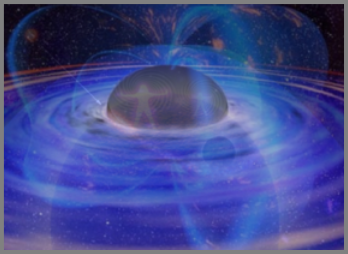
Shifting
Paradigms
Q: I understand that paradigms shift over time, and
that cultures transition from one to the next.
But what if the “old” paradigm is
clearly crumbling, the “emerging”
paradigm makes sense, and yet we don't fully accept
the “new” because the “old”
is so deeply rooted? How do we make the shift
in ourselves? Why do we sometmes fight the
shift?
Here’s
the challenge: We are born into the dominant cultural
paradigm, and we swim in it unconsciously as a fish
in water. But sometimes we wake up. We have
experiences that don’t fit into the mold of the
“old” paradigm—i.e., we have
anomalous experiences. So what do we do?
I think the first thing is to discover as best we can
just what the dominant paradigm tells us about the
nature of reality, and then look to see which
elements of it we accept and align with.
Next, we identify those aspects of our own
experiences and beliefs that don’t fit the
dominant paradigm, and look to see in what ways the
dominant paradigm needs to shift in order to
accommodate these “anomalous”
experiences. (That’s what we investigate in my
“Paradigms of Consciousness” class
at
John F. Kennedy
University.)
What elements of the “emerging” paradigm
(systems holism and perennial philosophy) transcend
and include the “old” paradigm in ways
that make room for the kinds of
“anomalous” events experienced by
millions of people around the world?
Paradigms have great potency. They are, in effect,
the framework of beliefs and assumptions that shape
our understanding of reality and how we fit in. This
potency is amplified because for the most part the
beliefs we inherit from the paradigm are unconscious.
As long as we are unaware of them we have little or
no power to choose to do or believe anything
different. That’s why it is so difficult to
“shift” a paradigm. In fact, we cannot as
individuals shift a paradigm because it is a
collective phenomenon.
But we can honor our own experiences and refuse to
deny or invalidate them just because the dominant
paradigm has no place for them. If we do stand by our
own experiences and are willing to communicate and
live by them, then we play our part in
“seeding” the paradigm with
“anomalies” that, sooner or later, will
accumulate to the point where the old paradigm
buckles under their weight, and crumbles. At that
point, a paradigm shift occurs. But it is beyond our
control.
We make the shift in ourselves by following the
process I’ve outlined above:
1. Become aware of the elements of the current
dominant paradigm (materialism/mechanism).
2. Become aware of elements of what seem to be an
“emerging” paradigm (e.g., systems holism
and the perennial philosophy).
3. Observe and note any personal experiences that do
not fit the “old” paradigm.
4. Look to see if our “anomalous”
experiences are aligned with elements of the
“emerging” paradigm.
5. Cultivate the practice of experience beyond belief
to liberate ourselves from “buying into”
a whole new set of limiting beliefs.
Which leads me to the next question . . .
Changing Beliefs
Q: You ask us to take a look at our current beliefs,
so I do. Most of my beliefs seem sensible and
grounded, but a few are clearly ridiculous, and I
want to change these beliefs. Any suggestions about
how to go about this?
I’m
not sure you have quite grasped the essential point
I’ve been making about “experience beyond
belief.” Yes, by all means examine your current
beliefs. Even better, observe the process by which
you turn experiences into beliefs:
experience —> interpretation —>
belief —> dogma —>
action.
The point is not whether our beliefs are
“sensible and grounded” (many of them
are). The point is that they are
beliefs.
And beliefs are the residue of expired experiences;
they are fragments, habits of thought, and may have
no bearing on what is actually occurring in our
moment-by-moment experience.
So, what I’m suggesting is that for
psycho-spiritual liberation, changing our beliefs is
not enough. We need to get beyond beliefs by learning
to
experience our experience
as it is happening. Cultivation of this practice
involves learning to identify with and to focus
attention on our experiences rather than on our
beliefs. (This involves unlearning what we are taught
by our educational system and wider culture). So, my
mantra is: Cultivate experience beyond belief.
[See
Radical Knowing
for more on this.]
Experience
Beyond Belief
Q: I know who I am, and I know God and reality by my
beliefs. Without beliefs I would know
nothing.
I
suggest it’s the opposite: Holding onto beliefs
is what blocks you from really knowing who you really
are or what reality is.
Therefore,
I encourage you to give up attachment to your beliefs
(not any belief in particular—but to beliefs in
general—and especially those cherished beliefs
you just
know
to be true).
Beliefs are habits of mind, frozen fragments of
consciousness. They are static snapshots of reality.
Even if we change them, beliefs cannot embrace the
dynamics of ever-changing reality. In short, our
beliefs (all our beliefs—yours, mine,
everyone’s) inevitably and automatically
distort reality. So, a good spiritual practice is to
let them go.
We can’t help having beliefs (it’s what
our minds are evolved to do, and they do that job
very well). But we can choose whether or not to be
attached to our beliefs. We can choose whether or not
we
believe
our beliefs. I’m encouraging you not to believe
your beliefs. Rather, I suggest that you learn to
notice them, and then release them.
Wisdom resides in our moment-to-moment experience,
not in our beliefs. As habits of mind, beliefs are
conditioned by the past. Experience, on the other
hand, always occurs in the present moment—now.
I’ll meet you there . . .
Belief is not Truth
Q: I’ve been brought up to believe that my
beliefs are my truth. And the new quantum paradigm
teaches us that beliefs create reality. Yet you seem
to be saying that our beliefs are not a guide to what
is true.
First,
quantum science has nothing to say about beliefs, and
does not support the idea that beliefs create
reality. That’s just a “pop”
distortion of some complex and profound ideas
emerging from quantum physics.
People believe all sorts of things, but that
doesn’t make them true. Belief does not equal
truth.
People used to believe the world was flat. Many
people still believe God is a man with a white beard
sitting on a throne in the sky. Some people believe
in the tooth fairy. Some people believe the holocaust
never happened. A great many people believe their
particular religion is “the” one and only
way to salvation. Some people believe in God. Some
people don’t believe in God. Who’s right?
They can’t all be right, right? God either
exists or does not (there can’t be an in
between). Simply believing in something doesn’t
bring it into being—otherwise God would be
popping in and out of existence moment by moment at
the whims of the beliefs of theists and atheists.
That would make God little more than a puppet dancing
to the differing beliefs of humans.
Holding dearly to the belief that beliefs are true,
doesn’t make it so.
So experiment: Just try out living for a few
days
as if
your beliefs may not be true. What would that be
like? Would you disappear? Would you be lost? Would
you lose your identity? Would you die? Or would you
feel a new sense of liberation because instead of
beliefs you begin to trust your actual experience
moment to moment (being careful, of course, not to
turn those experiences into new beliefs!)? Try it.
You might be surprised.
In
my forthcoming book,
Consciousness:
From Zombies to Angels,
I explore more deeply this relationship between
beliefs, experience, and reality. Getting beyond your
beliefs is one of the seven steps to knowing who you
really are.
You can pre-order a copy by clicking here:
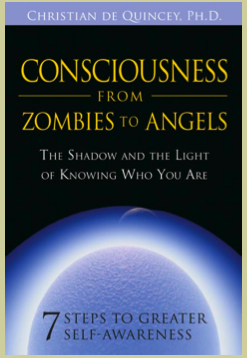
Are Humans Special?
— Christian de Quincey
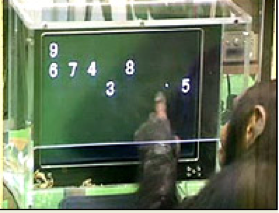
A
colleague replied:
First of
all I want to say that I am 100 per cent in alignment
with your goal of “a saner, healthier, more
equitable, more sustainable, more compassionate world
for all species.”
I have
explored these questions through living them. I have
been a vegan, vegetarian, eating only
“happy” animal products. I used to live
on an organic farm. I have volunteered for
Greenpeace, the Green Party (both in the U.S. and
U.K.). I have explored deep and transpersonal
ecology, social ecology, eco-feminism,
eco-Marxism/Anarchism/Capitalism, animal rights, and
welfare ethics, bioethics etc. I have protested fox
hunting, climate change, global capitalism, marched
for peace, etc.
So I share
your concern that a holocaust has been unleashed on
nature by humanity. It's heartbreaking, on top of all
the inevitable heartbreaks of life—what a
waste. Ultimately, my goal in life and for all people
is to live in the mystery, to live in
love—now.
Even if I
am not able to articulate it fully in words, I have a
sense that everything is especially special, and what
is special about humans is this: We can
consciously
learn how
to manifest beauty, love, joy, compassion, truth,
authenticity, wildness, non-attachment, intimacy,
trust, light, heat, health, life—Divinity.
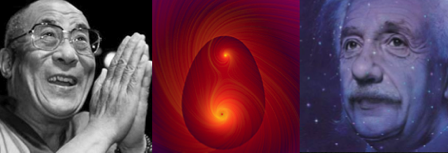
My response: I’m
with you all the way in your project to “live
in the mystery” and “to learn to manifest
beauty, love, joy, compassion . . .”
Yes!
I'd like
to explore two points you make: First, to say that
every species is special makes sense. It means that
every species has something unique that makes it that
particular species. You could say it is part of the
definition of what being a species is. But to say
that all are “especially special” is a
contradiction. It’s just not possible that
everything is more special than everything else. The
problem with the notion “humans are special" is
that it implies we are especially
special
or uniquely
unique. I
think such self-aggrandizing hubris is the source of
the “holocaust” on nature you mention.
That is why I say we need to change our fundamental
guiding story as a civilization. That is why I write
my books. That is why I teach.
The other
point, directly related, is when you say “what
is special about humans is this: We can
consciously
learn to
manifest beauty, love, joy, compassion, truth,
authenticity, wildness, non-attachment, intimacy,
trust, light, heat, health,
life—Divinity.” I see this as just
another version of the fundamentalist credo that God
made humans “stewards” of the Earth.
What basis
do you have for asserting (believing) only humans
have the capacity to consciously
learn to
manifest beauty, love, joy, compassion . . .?
Isn’t that just an assumption? (perhaps
motivated by a deep-seated, unconscious urge to put
humans above the rest of nature—and that, I
think we both agree, is a recipe for ecological
disaster). Anyone who has spent time with other
species—such as dogs, dolphins, whales,
parrots, chimps, gorillas, elephants—knows that
they also appreciate and manifest love, joy,
compassion, etc. How can you know whether or not this
is accompanied by conscious intent? Why would you
assume it is not?
What's the Evidence?
How much
evidence do we need to show that every
“special” quality attributed to humans is
also exhibited by other species? These qualities
evolve, and are on a spectrum. Humans shine brighter
on some qualities; other species shine brighter on
different qualities. The most recent example is the
striking, even startling, evidence that young chimps
have memory abilities far superior to humans’.
Name any other “special” human quality,
and then do the requisite interspecies research; you
will find evidence for that trait in some other
species, too.
If your
commitment to human specialness is evidence-proof,
that would make it pure ideology—just
fundamentalist faith. If not, what evidence would
shift your position?
Have you
ever hung out with a dog, for example, and noticed
his/her commitment to “joy, love, compassion,
authenticity, wildness, non-attachment, intimacy,
trust, light, heat, health, life?” How would
you know whether a dog or any other species has a
conscious commitment to beauty or divinity? Do dogs
show appreciation for human
notions of
“beauty”? Hardly. But, then, when was the
last time you or I rolled around in some deliciously
smelly piece of decaying flesh, or licked a leaf
where a raccoon had pissed the night before? I
won’t even ask why you think humans are the
only species with a hotline to divinity.
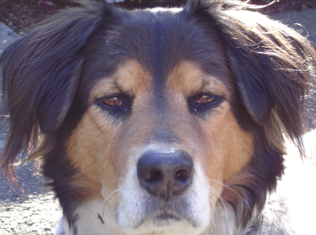
I’m
urging us to nudge ourselves out of the (ultimately
self-destructive) rut of anthropocentricism.
Here’s a question: Are we the only species that
has the capacity to shift our species perspective?
Can dogs shift from canine-centricism? Chimps from
chimp-centricism? Dolphins from cetacean-centricism?
Can other species besides humans adopt the
perspective that other species also have a valid
perspective on reality? How would you test this? Or
would you jump to the conclusion that there’s
no need to test because you already
“know” the answer?
(fundamentalism).
When I
engage in debates on this topic, and challenge the
notion of “human specialness,” I have
been accused of being a “traitor to my
species.” Typically, I respond with a mix of
obviousness and humor: “Some
of my best friends are humans.”
I am
not down on humanity per
se. I do love
the magnificence and spirit of humanity. I want us to
survive as a species. But I do not want us to cling
to a metaphysical story that elevates us above the
rest of nature; a story that is doomed to fail us and
bring down many other species with us. Seeing it
happen all around the world, at a rapidly increasing
rate, saddens my heart. And I'm often angry at our
profound stupidity and self-serving greed.
Do Science and Spirituality Make Us
Special?
Yes, there
is something special about humans:
We can ask these deep metaphysical
questions. We can
debate them. So what? Does it make us
especially
special?
Does it make us superior?
Does an
ability to construct complex and subtle abstract
models—we call them “cosmologies,”
“metaphysics,”
“science”—mean we are superior to
other species? Who decides that? How much of our
civilization is, ultimately, created in the service
of over-inflated human egos? And, really, why should
we assume that even engaging in spiritual practices
that lead to experiences of “unity,”
“divinity,” “transcendence,”
or “transformation” is a mark of superior
or special consciousness?
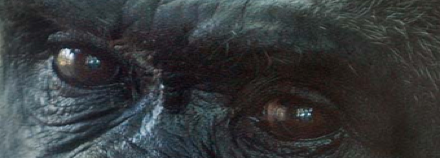
Couldn’t it be that we humans feel a need to engage in such psychospiritual practices precisely because we are constitutionally out of sync with the rest of nature? I’ve never met a parrot who needs a priest, a rabbit longing for a rabbi, a gorilla searching for a guru, or a dog howling for the divine. What we assume to be great achievements of the human mind may, in fact, be magnificent expressions of a profound pathology. Maybe. I don’t assume I know the answer to this either way. What I do know is that I don’t know of any evidence that marks humans as “especially special.” And certainly I do not know that humans have any “divine” or “natural” right to exploit other species.
I want us
to recognize and acknowledge that we, necessarily,
experience, perceive, and interpret the world, and
our place in it, from a thoroughly
human perspective.
And part
of that perspective, understandably, is self-serving.
But we also have the ability to realize that what
applies to us also applies to other species. They,
too, naturally and inevitably, experience, perceive,
and interpret the world, and their place in it,
from their
perspective.
We simply
have no right or reason to assume that our
perspective trumps all others. That’s my bottom
line.

Darwin or Jesus?

How About a Sacred Fish with Legs?
What
if both science and religion are wrong about
evolution?
What if both are right?
We’ve all seen them: bumper stickers and decals
of a fish with legs symbolizing Darwin’s theory
of evolution. And then, from religious creationists,
the “counter-decals” of a
fish-with-a-cross swallowing
“Darwin’s” amphibious fish. The
battle of the decals is just one way the debate
between creationists and evolutionists overflows onto
our streets.
But there’s an alternative: a philosophy that
shows why both religion and science have got it
wrong—and right.
To move beyond the sectarian clashes and wars in
these troubled times—between fundamentalists in
both religion and science—we need a wiser, more
coherent, account of who we are and how we came to
be. We need a revised and renewed vision of creation
and evolution. We need a deeper and broader
understanding of both religion and science.
Both Wrong and Right
Religion is wrong to place the “Creator”
beyond nature (as supernatural).
Science is wrong to deny intelligence (consciousness
or spirit) at work in evolution.
Religion is right to hold the view that there is
creation and that creation possesses intelligence.
And religion is right to deny that the birth and
evolution of our world happened by chance.
Science is right to hold the view that evolution
produces different species, including humans. And
science is right to deny that some
“supernatural” intelligent designer is
responsible for the wondrous diversity and
interconnectedness of living and non-living forms.
Best of Both
In the new view, creation is not the result of some
“supernatural Creator.” Nor is creation a
one-time event. Instead, creation is continuous and
natural. Evolution is not random and unfolding
without the guidance of a deep intelligence. Nature
itself is naturally intelligent and creative.
That’s how evolution occurs.
Instead of a “higher” intelligence,
let’s be open to a deeper intelligence. Instead
of “dead” and “dumb” matter,
let’s be open to sentient and intelligent
matter.
Then we can have the best of both
worlds—integrating the great insights of both
religion and science. The “missing link”
is consciousness. The ability to have experience, to
feel, to be aware is a complete mystery to science.
Evolution cannot explain it. Religions take it for
granted that this ability is unique to humans (or, at
best, to creatures with brains). The fact of
consciousness highlights the shortcomings of both
science and religion, and it offers a way out of the
seemingly endless debate between evolutionists and
creationists.
New Worldview
We need a new worldview where religion recognizes
that consciousness (intelligence or spirit) is not
“supernatural,” but is part of the
natural fabric of cosmos, Earth, and life, and where
science recognizes that matter itself “tingles
with the spark of spirit,” that evolution is
guided from within. This “new” philosophy
or worldview is called “panpsychism” or
“radical
naturalism.”
We could also call it “intelligent
evolution.” (Actually, it’s a very
ancient philosophy, shared by indigenous cultures
throughout the world.)
If we shift to such a view, then we can begin to
transcend the squabbles between those who believe in
supernatural “intelligent design” and
those who believe in random evolution.
The biggest challenge facing modern science is to
explain the mystery of consciousness. A science based
on the assumption of “dead” insentient
matter exploding from a random Big Bang cannot
account for mind. Yet consciousness is the one thing
we can be absolutely certain exists.
The biggest challenge facing mainstream religion is
to remain relevant in a world increasingly dominated
by scientific knowledge.
The philosophy of intelligent evolution can help
science and religion meet these challenges. In a
nutshell, it takes us beyond the dogmas of both:
Beyond Religion: The world was not created by a
supernatural transcendent God (in seven days or 13.7
billion years).
Beyond Science: The world did not come into being
from a random Big Bang followed by billions of years
of random chemical and biological evolution.
Instead, the most coherent story about how the world
came to be (a world where both matter and mind are
real) recognizes that
* Spirit is not supernatural (above and beyond
nature).
* Evolution is not without purpose or intelligence.
The new philosophy offers a way to honor the deep
insights of both religion and science.
Intelligent Design
Yes, there is an “intelligent designer”
at work in evolution. But the intelligence (call it
“God” or “Spirit” or
"Creative Ultimate") is intrinsic to nature. Nature
itself is intelligent (has sentience and
consciousness, purpose and meaning) “all the
way down” to single cells, molecules, atoms,
and subatomic particles.
Evolution
In this new view of nature and evolution, matter
itself is intelligent. Matter is
“adventurous.” Evolution is the great
adventure of matter exploring its own creative
potentials. As matter evolves, its native
intelligence or consciousness evolves, too. So by the
time human brains come on the scene, matter or nature
has achieved the remarkable ability to be
self-reflective—to know that it knows—and
to ponder the eternal questions in religion,
philosophy, and science: Where did we come from? Who
are we? Where are we going? Why is there anything at
all?
Intelligent Evolution: A Sacred Fish with Legs?
Instead of the amusing (and silly) bumper-stickers
pitching Darwin against Jesus (evolution vs.
religion), we can come up with a new set of symbols
and sound-bytes:
Picture a decal that shows a fish with legs and a
halo, indicating that evolution is a sacred process
because spirit is active in the development of
species. Evolution is natural and creative. We could
say “Spirit Matters” or, just as
meaningful, “Matter Spirits.”
